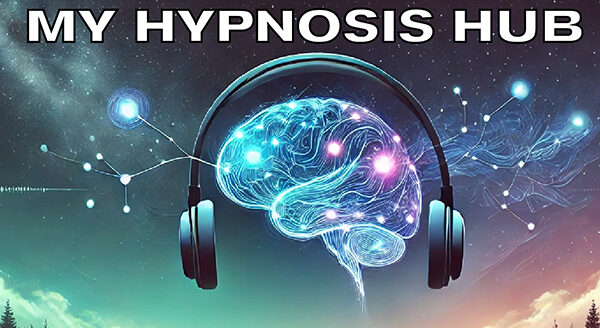Can Hypnosis Cure OCD? Understanding and Overcoming Obsessive-Compulsive Challenges
Can hypnosis cure OCD? This question has grown more urgent as individuals dealing with obsessive-compulsive disorder (OCD) seek solutions that go beyond conventional therapy and medication. OCD can be debilitating, consuming your thoughts with repetitive worries and driving you to engage in rituals you can’t seem to control. As awareness of holistic treatment methods expands, hypnosis has emerged as an intriguing avenue—one that aims to address not just behavioral patterns, but the subconscious drivers of anxiety. In this comprehensive post, we’ll examine the nature of OCD, explore the principles behind hypnosis for OCD treatment, and discuss how specialized audio programs might help you or a loved one break free from the cycle.
If you’re interested in a professionally designed hypnosis program for OCD, consider exploring this OCD Treatment Hypnosis Audio.
OCD Unpacked: What Is Obsessive-Compulsive Disorder?
Signs and Symptoms
Before diving into can hypnosis cure OCD as a concept, it’s crucial to understand the disorder itself. OCD is characterized by two main components:
- Obsessions: Intrusive, persistent thoughts that trigger significant anxiety or distress. These might center on contamination fears, a need for symmetry, or catastrophic worries.
- Compulsions: Repetitive behaviors or mental acts performed to neutralize the anxiety spawned by obsessions. Common compulsions include hand-washing, counting, checking, or re-arranging items until they feel “just right.”
Not everyone’s OCD looks the same. Some might spend hours meticulously cleaning; others can’t leave the house without triple-checking door locks. Regardless of the exact ritual, the underlying driver is the same: an urgent need to reduce overwhelming anxiety.
Why Traditional Approaches Aren’t Always Enough
Cognitive-behavioral therapy (CBT), particularly Exposure and Response Prevention (ERP), is widely recognized as a gold-standard treatment. Medications like selective serotonin reuptake inhibitors (SSRIs) can also be beneficial. Yet, some individuals find these methods slow, challenging to sustain, or insufficient. That’s where hypnosis steps in—as a complementary approach that tackles both conscious and subconscious factors, providing a new angle on relief.
Can Hypnosis Cure OCD at the Subconscious Level?
Hypnosis and the Mind-Body Connection
Hypnosis works by guiding a person into a relaxed, focused state where the subconscious mind becomes more open to suggestion. This state is sometimes described as “trance-like,” but it’s essentially a heightened sense of internal concentration and calm. By contacting the part of the mind that’s behind reflexive thoughts and responses, hypnosis can help break the feedback loop that perpetuates obsessions and compulsions.
Rewriting Anxious Thought Patterns
When you have OCD, the subconscious latches onto certain anxieties—germs, accidents, or misfortunes—and exaggerates them. The mind then enforces repetitive rituals to neutralize these fears. A well-crafted hypnosis session can insert new scripts into the subconscious, such as: “I can let go of anxious thoughts,” or “I’m capable of handling uncertainty without repetitive actions.” Over time, these suggestions may lessen the intensity of obsessive worries, empowering you to resist compulsive urges.
Ready to try hypnosis for yourself? Take a look at this specialized OCD Treatment Hypnosis Audio.
The Science Behind Hypnosis for OCD
Research Insights and Efficacy
While research specifically targeting can hypnosis cure OCD remains limited, a growing body of studies suggests that hypnosis can significantly reduce anxiety, address phobias, and alter deep-rooted beliefs. Some clinical settings already integrate hypnotic techniques into CBT, reporting enhanced outcomes. The rationale is straightforward: if you can reach the subconscious anchor of a fear or negative belief, you can more rapidly rewrite the emotional response driving compulsive behavior.
Complementary to Existing Therapies
It’s important to emphasize that hypnosis isn’t usually a standalone cure. Many mental health professionals advocate combining hypnosis with established treatments such as ERP, talk therapy, or medication. This comprehensive approach ensures you benefit from both scientific best practices and the unique advantages that hypnotic suggestion offers.
Key Components of Hypnotic Treatment for OCD
Induction and Relaxation
A hypnosis session typically begins with an “induction” phase designed to calm the body and mind. Through slow breathing, guided imagery, or progressive muscle relaxation, you enter a state of relaxed focus. This lays the groundwork for deeper therapeutic work, allowing your subconscious to be more receptive.
Positive Suggestions
Once you’re in this calm, receptive state, the hypnotherapist (or audio program) introduces carefully phrased suggestions. For OCD, these might focus on:
- Reducing Anxiety: Suggesting you can remain calm even when confronted with triggers.
- Challenging Rituals: Reinforcing the idea that you’re safe without performing the ritual.
- Building Self-Trust: Establishing confidence in your ability to endure discomfort without resorting to compulsions.
Visualization
A hallmark of hypnotic work involves guided imagery. You might be asked to imagine a future scenario in which you approach a typical OCD trigger—like a doorknob or a messy shelf—but respond calmly, resisting the compulsive urge to clean or reorder. By mentally rehearsing this success, your subconscious starts to adopt it as a viable behavioral template.
Can Hypnosis Cure OCD? Weighing Expectations and Outcomes
Realistic Goals
Hypnosis can significantly reduce OCD symptoms, but calling it a guaranteed “cure” can be misleading. Many individuals experience substantial improvement—lessened anxiety, fewer compulsive episodes, and greater emotional resilience. However, mental health issues often require ongoing management. Hypnosis may serve as a pivotal tool in your toolkit, rather than a magic switch that eradicates the disorder entirely.
Indicators of Progress
As you engage in hypnotic practice (either via a hypnotherapist or guided audio):
- Reduced Ritual Frequency: You may notice that you’re performing compulsive behaviors less often.
- Lower Anxiety: Triggers feel more manageable, and your reaction is less panicked.
- Greater Mental Flexibility: Rigid or all-or-nothing thinking starts to relax, leaving room for self-compassion and adaptability.
Practical Steps to Integrate Hypnosis into Your Life
Consistent Listening Habits
If you choose an audio-based hypnosis program, consistency is critical. Listen to the sessions daily or a few times a week. Many people incorporate hypnosis into their bedtime routine, using the relaxed state before sleep to enhance absorption of suggestions.
Combine with ERP or CBT
Remember that can hypnosis cure OCD doesn’t suggest abandoning other therapies. If you’re already engaged in CBT or ERP, consider how hypnosis might synergize with these approaches. You might, for instance, use hypnosis to mentally rehearse ERP exercises, solidifying your capacity to resist compulsions in real life.
Journal Your Changes
Keep track of your symptoms before and after introducing hypnosis. Note how often you feel compelled to engage in a ritual, or the intensity of your anxious thoughts. Over weeks or months, patterns may reveal themselves, highlighting the shifts hypnosis brings.
Addressing Common Myths About Hypnosis and OCD
“Hypnosis Is Mind Control”
Contrary to Hollywood depictions, a hypnotherapist can’t force you to do anything against your will. You remain aware and in control throughout the process. The aim is to unlock your ability to reshape your own thoughts and habits.
“You Need to Believe 100% for It to Work”
While an open mind certainly helps, absolute belief isn’t mandatory. Approach hypnosis with curiosity rather than skepticism or blind faith. Over time, real-world improvements in your OCD symptoms can build your trust in the process organically.
“It’s Only for Weak-Minded People”
In reality, hypnotic responsiveness doesn’t equate to vulnerability. Studies show that intelligence and the capacity to focus often enhance one’s ability to benefit from hypnosis. It’s a skill, not a weakness.
Case Studies and Anecdotal Evidence
Personal Success Stories
While large-scale research on can hypnosis cure OCD remains ongoing, anecdotal accounts are plentiful. Some individuals have reported that after a few months of consistent hypnotic practice, their compulsions dropped significantly—from triple-checking locks every night to only double-checking, or from wearing gloves throughout the day to feeling comfortable touching everyday objects. These personal triumphs, while not universal, showcase the potential for meaningful improvements.
The Role of Professional Guidance
If your OCD symptoms are severe, seeking professional help is essential. A skilled hypnotherapist who understands OCD can craft highly customized scripts that address your specific triggers. In some cases, they may consult with your mental health providers to align treatment goals—ensuring that hypnosis complements medical advice or medication regimens you’re already following.
Roadblocks and Solutions
Initial Discomfort
Some people find the early stages of hypnosis unsettling, particularly if they’re not accustomed to focusing inward. You might feel a bit vulnerable when confronted with anxious thoughts in a relaxed state. This unease typically lessens as you grow more comfortable with the hypnotic process.
Temporary Increase in Symptoms
Occasionally, shining a light on your obsessions or compulsions can momentarily intensify them. This phenomenon occurs in various types of therapy—exposure can spike discomfort before leading to sustained relief. Staying consistent is key; a short-term increase in symptoms often precedes a breakthrough.
Embracing Your Path to Recovery
Can hypnosis cure OCD, or at least significantly manage it? For many, hypnosis offers a valuable solution that addresses the deep-seated fears fueling obsessive-compulsive patterns. From lowering overall anxiety to helping you trust that you can endure uncertainty without rituals, hypnosis can be a turning point. Combined with other proven therapies and guided by realistic expectations, it could be your next step toward a calmer, more liberated life.
Each person’s journey with OCD is unique, and no single remedy is universal. That said, the strategic use of hypnosis—especially when facilitated by an experienced professional or well-designed audio—can change how you relate to obsessive thoughts and compulsive urges. Instead of feeling trapped in a relentless cycle, you may find yourself equipped with new mental resilience and a restored sense of control.
If you’re curious about other ways hypnosis might tackle unwanted habits, check out our post on Can Hypnosis Stop Me Scratching My Head. You’ll discover further insights into the versatility of this therapeutic approach and how it can address a range of issues beyond OCD.
Can Hypnosis Cure OCD YouTube Video
Ready to try hypnosis for yourself? Take a look at this specialized OCD Treatment Hypnosis Audio.


